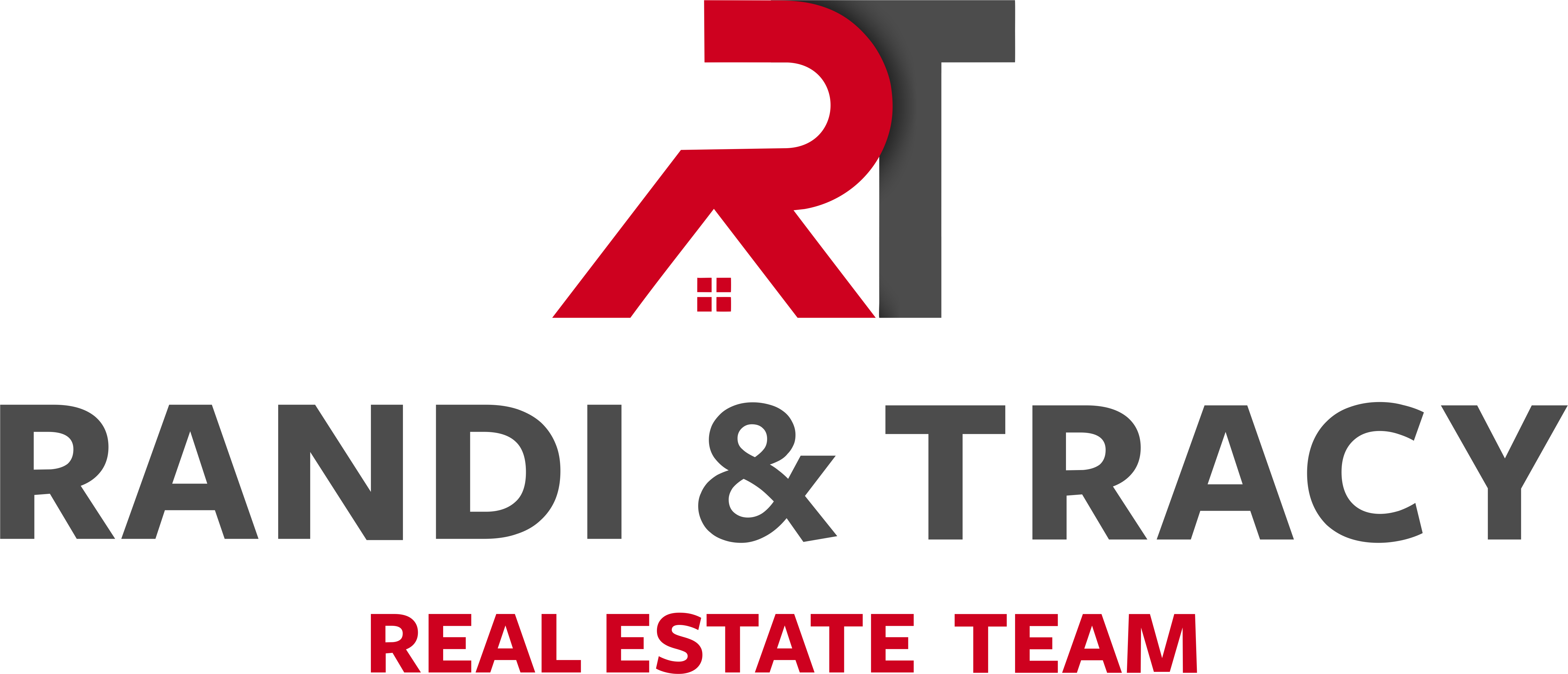 259-9250 Email sabrina@randiandtracy.com.jpg?w=1140)
Consumer Information Statement
New Jersey State law requires real estate licensees to disclose how they intend to work with buyers and sellers in a real estate transaction. This information statement is intended to assist you in making informed decisions regarding your relationship with a real estate broker and its sales agents. (In rental transactions, the terms “buyers” and “sellers” throughout this document should be read as “tenants” and “landlords”, respectively). 1. A SELLER’S AGENT OR SUBAGENT REPRESENTS THE SELLER AND WILL DISCLOSE ALL MATERIAL INFORMATION SUPPLIED BY THE BUYER TO THE SELLER. 2. A BUYER’S AGENT REPRESENTS THE BUYER AND WILL DISCLOSE ALL MATERIAL INFORMATION SUPPLIED BY THE SELLER TO THE BUYER. 3. A DISCLOSED DUAL AGENT REPRESENTS BOTH PARTIES AND MAY NOT, WITHOUT EXPRESS PERMISSION, DISCLOSE THAT THE SELLER WILL ACCEPT A PRICE LESS THAN THE LISTING PRICE OR THAT THE BUYER WILL PAY A PRICE GREATER THAN THE OFFERED PRICE. 4. A TRANSACTION BROKER DOES NOT REPRESENT EITHER THE BUYER OR THE SELLER. ALL INFORMATION ACQUIRED FROM ONE PARTY MAY BE DISCLOSED TO THE OTHER PARTY. 5. A DESIGNATED AGENT HAS THE SAME DUTIES TO ITS PRINCIPAL AS A SELLER’S OR BUYER’S AGENT, HOWEVER THE BROKERAGE FIRM THE DESIGNATED AGENT IS AFFILIATED WITH ACTS AS A DISCLOSED DUAL AGENT. Before you disclose confidential information to a real estate licensee regarding a real estate transaction, you should understand what type of business relationship you have with that licensee. There are five business relationships: (1) seller’s agent; (2) buyer’s agent; (3) disclosed dual agent; (4) designated agent; and (5) transaction broker. Each of these relationships imposes certain legal duties and responsibilities on the licensee as well as on the seller or buyer represented. These five relationships are defined in greater detail below. Please read carefully before making your choice. SELLER’S AGENT A seller’s agent works only for the seller to secure a buyer for the seller’s home at a price and on terms acceptable to the seller. The seller’s agent solely represents the interests of the seller and has legal obligations, called fiduciary duties, to the seller. These duties include, without limitation, reasonable care, undivided loyalty, confidentiality, full disclosure and the duty to account. Seller’s agents often work with buyers, but do not represent the buyers. In working with buyers or their representatives, a seller’s agent must act honestly and treat all parties to a transaction fairly. A seller’s agent may not make any misrepresentations to either party on matters material to the transaction, such as the buyer’s financial ability to pay, and must disclose defects of a material nature affecting the physical condition of the property, which a reasonable inspection by the agent would uncover. Seller’s agents include all persons licensed with the brokerage firm, which has been authorized through a listing agreement to work as the seller’s agent. In addition, other brokerage firms may accept an offer to work with the listing broker’s firm as the seller’s agents. In such cases, those firms and all persons licensed with such firms are called “sub-agents.” Sellers who do not desire to have their property marketed through sub-agents should so inform the seller’s agent. BUYER’S AGENT A buyer’s agent works only for the buyer to negotiate the purchase of a home at a price and on terms acceptable to the buyer. The buyer’s agent solely represents the interests of the buyer and has fiduciary duties to the buyer. These duties include, without limitation, reasonable care, undivided loyalty, confidentiality, full disclosure, and the duty to account. Buyer’s agents often work with sellers, but do not represent the sellers. In working with sellers or their representatives, a buyer’s agent must act honestly and treat all parties to a transaction fairly. A buyer’s agent may not make any misrepresentations on matters material to the transaction, such as the buyer’s financial ability to pay, and must disclose defects of a material nature affecting the physical condition of the property which a reasonable inspection by the agent would uncover. Buyer’s agents include all persons licensed with the brokerage firm, which has been authorized through a brokerage services agreement to work as the buyer’s agent. DISCLOSED DUAL AGENT A disclosed dual agent represents both the buyer and seller in a real estate transaction. To work as a dual agent, a firm must first obtain the informed written consent of the buyer and the seller. Disclosed dual agency is most likely to occur when a buyer’s agent shows the buyer properties owned by sellers who are represented by the same brokerage firm that the buyer’s agent is affiliated with. CONSUMER INFORMATION STATEMENT ON NEW JERSEY REAL ESTATE RELATIONSHIPS 2024.08 CIS (A) Page 2 of 2 A brokerage firm acting as a disclosed dual agent may not put one party’s interests ahead the other party’s and cannot advise or counsel either party on how to gain an advantage at the expense of the other party on the basis of confidential information obtained from or about the other party. When working as a disclosed dual agent, a brokerage firm must have the express permission of a party prior to disclosing confidential information to the other party. Such information includes the highest price a buyer can afford to pay and the lowest price a seller will accept and the parties’ motivation to buy or sell. Disclosed dual agents must carefully explain to each party, that, in addition to working as their agent, their firm will also work as the agent for the other party. They must also explain the effects of dual representation on the firm’s fiduciary duties to each party, including that by consenting to the dual agency relationship, the buyer and seller are forfeiting their right of undivided loyalty. In the absence of designated agency, disclosed dual agents include all persons licensed with the brokerage firm, which has been authorized through a brokerage services agreement to work with both parties as disclosed dual agents. Buyers and sellers should carefully consider the consequences of a dual agency before agreeing to such representation. DESIGNATED AGENT Upon the informed written consent of the buyer and the seller, a brokerage firm that represents both parties as a disclosed dual agent may designate separate individual agents to represent the buyer and seller. Each designated agent represents the interests of their designated principal (the buyer or seller) and advocates on their behalf in negotiations between the buyer and seller. Designated agents have duties that are the same as a buyer’s or seller’s agent, as applicable, which are summarized above. The brokerage firm, under whose supervision the designated agent functions, remains a dual agent of both buyer and seller and accordingly cannot provide undivided loyalty to either party. TRANSACTION BROKER New Jersey law does not require real estate brokerage firms to work in the capacity of an “agent” when providing brokerage services. A transaction broker works with the buyer or seller or both in the transaction without representing either party. A brokerage firm acting in the capacity of transaction broker serves as a manager of the transaction and performs tasks to facilitate the closing of the transaction. A transaction broker must communicate and work with all parties to assist them in arriving at a mutually acceptable agreement and in closing the transaction but cannot advise or counsel either party on how to gain an advantage at the expense of the other party. Transaction brokers are required to treat all parties fairly and to act in a competent manner but are not required to keep any information confidential. The transaction broker relationship extends to all persons licensed with the brokerage firm, which has been authorized through a brokerage services agreement to work as a transaction broker.



